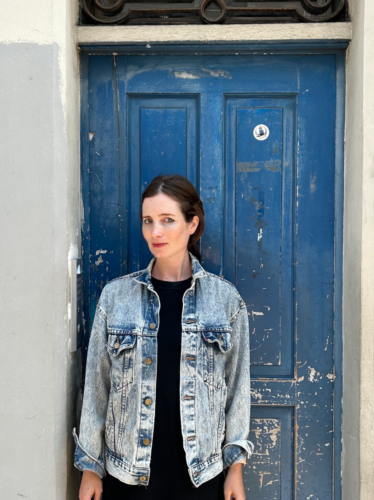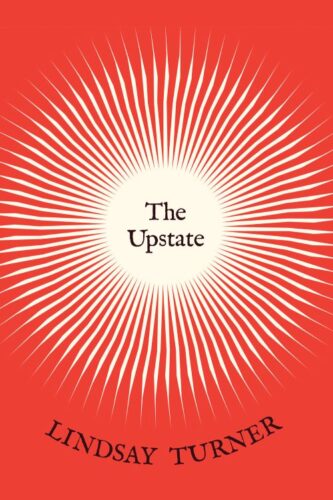the hawks are a-nestingstorms in the eveningsno the hawks are re-nestingthe forest is gonethey clearcut the forestthe smell of black plasticthe forms of displeasurecircling the lotprescient bright winged thingsbig iridescent bubblesthe forms of displeasureblow over like stormswhat you need to understand isit’s systems not peoplethe bright formal nothingsgo rising up the hillit’s systems not peopleit’s braided with pleasurephthalates and parabenscircling like droneswhat goes in the new spaceare you the new girllike rotted out rope strandsthe rope hollow at the core
Feature Date
- April 29, 2024
Series
- What Sparks Poetry
Selected By
Share This Poem
Print This Poem
“Forms of Displeasure” from THE UPSTATE: by Lindsay Turner.
Published by University of Chicago Press on October 06, 2023.
Copyright © 2023 by Lindsay Turner.
All rights reserved.
Reproduced by Poetry Daily with permission.

Lindsay Turner is a poet, critic, and French-to-English translator. She’s the author of two books of poems: Songs & Ballads (Prelude Books) and The Upstate (University of Chicago Press). Her poems and translations appear in Harper’s, The New York Review of Books, The Atlantic, and elsewhere. Originally from northeast Tennessee, she now teaches at Case Western Reserve University and lives in Cleveland.
"Turner has been a poet to watch since before her first book; she has also become a poet to marvel over, a poet carrying poetry into the next decades. But The Upstate is more than just an affirmation of what Turner's readers already knew—it is a catalog of the impossibilities of living in the present cultural moment, and yet it resolves itself in hope, in a vision of the possibility of 'money without death, ' and so a vision of a world better than any world before it. Turner sees a future world that is better than it could be, and in The Upstate she takes her poetry there. This is a salvific book."
—Shane McCrae, author of Cain Named the Animal
"These words will always stay with me: 'The question is who does your money come from / The question is whose loss.' With lyric force, Turner expresses the magnitude of toxic wreckage in the landscapes of southern Appalachia, as well as the scales of sorrow for a country and world that pretend wealth comes at no cost. Her exquisite poems grieve precisely for people, water, trash, animals, air, flowering trees. I feel lucky to have The Upstate in my hands and its cadences in my body, reminding me. 'Who can't live the thing she wants which is good and reasonable / Because of your money.'"
—Joanna Klink, author of The Nightfields
"The Upstate packs teeming lack. Turner has worked a poetry of muscular disgust for plutocracy. Track how the poet tends to glare then look askance, but in a way that damns, not frets. Who ends a poem with 'credible, credible'? The same poet who, when near-subsumed in impressionistic flood, brickwalls the lines into remarkable crush: 'Burning transparent all the way up to the top where the workers / Rise into a general collective of all they wouldn't offer.' Turner, that's who. The Upstate is an uppercut as statement. That's what."
—Douglas Kearney, Phoenix Poets consulting editor and author of Sho
Poetry Daily Depends on You
With your support, we make reading the best contemporary poetry a treasured daily experience. Consider a contribution today.




